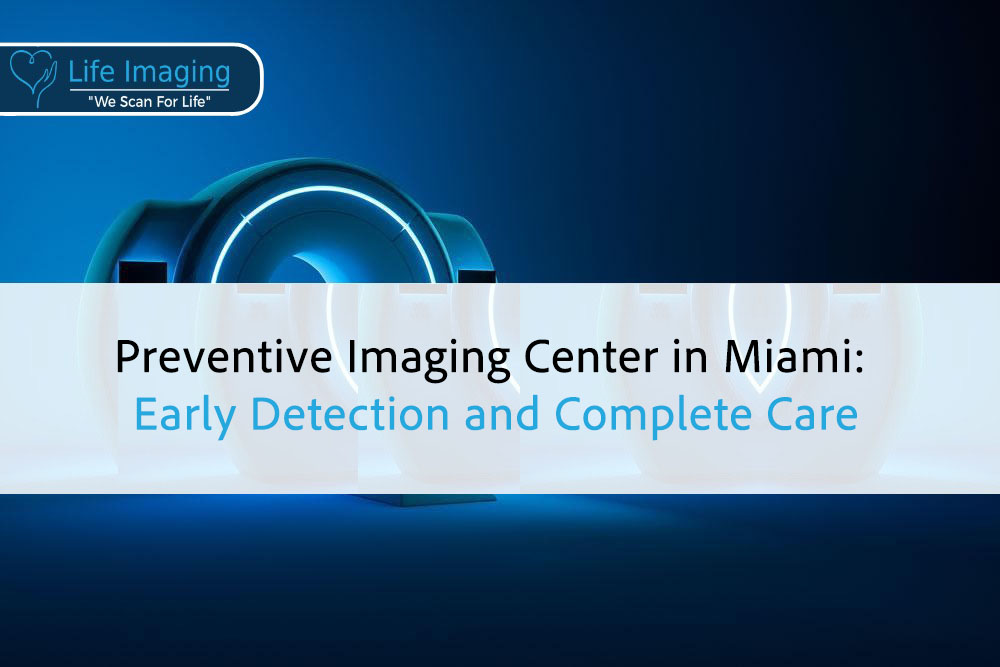
Coronary Artery Scan Near Me in Jupiter: Early Heart Health Detection
Introduction Your heart works hard every second of the day,

Feeling anxious before a medical scan is common. Many people in Orlando experience pre-scan anxiety due to fear of the unknown, discomfort, or simply being in a medical setting. Learning how to manage this anxiety can make the process smoother and less stressful.
Anxiety can affect your overall scan experience and even the results. When you’re anxious, your body can react in ways that might interfere with the imaging. Relaxation techniques and proper preparation can help reduce anxiety, ensuring you get the most accurate results from your scan.
Knowing what to expect and how to prepare can take much of the worry away. In this article, we will explore various tips and strategies to help you manage anxiety before your scan, making the experience as comfortable as possible. Whether it’s through simple breathing exercises or having a support person by your side, there are many ways to ease your mind before stepping into the imaging center.
Pre-scan anxiety is a common feeling experienced by many people before undergoing a medical scan. This anxiety stems from various factors such as fear of the unknown, worry about potential results, or simply being uncomfortable in a medical environment. Understanding why you feel anxious can help you manage these emotions better.
Many patients feel a sense of vulnerability when entering a scanner. The unfamiliarity of the equipment, the sounds it makes, and the requirement to stay still can all contribute to increased stress levels. Additionally, the anticipation of what the scan might reveal can create a mental burden, further amplifying anxiety.
Recognizing that pre-scan anxiety is normal can be the first step towards managing it effectively. By acknowledging these feelings, you can start to take active steps to reduce anxiety and make the scanning process smoother and more comfortable.
Managing anxiety before a scan is crucial for several reasons. Firstly, excessive anxiety can affect your physiological state. High-stress levels can lead to increased heart rate and blood pressure, which might impact scan results and make interpretation more challenging for your doctor.
Secondly, being calm helps you to stay still during the scan, which is essential for getting clear, accurate images. Movement during the scan can result in blurry images, requiring retakes and extending the procedure time, which can further increase anxiety.
Finally, managing anxiety improves your overall experience. Scans are already a routine part of medical care, and feeling calm and comfortable can make the process much less stressful. This positive experience encourages you to be proactive about future medical care, promoting better long-term health.
Breathing exercises are one of the simplest yet most effective ways to calm your nerves before a scan. These exercises help lower your body’s stress response and induce a feeling of relaxation.
Practicing these exercises even a few minutes before your scan can significantly ease anxiety, making the entire process more manageable.
Visualization techniques can also play a vital role in reducing anxiety before a scan. This method involves using your imagination to create calming and peaceful images in your mind. Visualization helps distract you from anxious thoughts and can make you feel more at ease.
Using these visualization techniques before and during your scan can help you remain calm and focused, making the experience smoother and more comfortable.
Being prepared for your scan can ease anxiety by making the process more predictable. Here’s what you can expect:
Knowing these steps in advance helps reduce surprises and allows you to mentally prepare, easing pre-scan jitters.
Talking to your technician can significantly reduce anxiety. Here’s why:
Open communication with your technician serves to calm nerves and create a more reassuring environment.
Listening to music or soothing audio can be an effective way to manage anxiety during a scan. Here’s how:
By focusing on calming audio, you can divert your attention from the scan process, reducing anxiety.
Bringing comfort items can make a significant difference in managing scan anxiety. Here are a few suggestions:
Comfort items offer a sense of familiarity and security, making the scan experience less intimidating.
Bringing a support person can greatly ease anxiety before and during your scan:
Having a support person can make a significant difference by offering both emotional and practical aid.
Choosing a convenient time for your scan can reduce stress:
Convenient timing can help you stay relaxed and improve your overall scan experience.
Taking steps to relax after your scan can help you decompress:
Implementing these tips can help you relax and feel at ease after your scan.
Life Imaging Fla offers several measures to support patients feeling anxious:
– Calm Environment: Our facilities are designed to be peaceful and welcoming, helping you feel at ease the moment you arrive.
– Experienced Staff: Our trained technicians and staff are skilled in managing patient anxiety. They provide clear instructions and reassurance throughout the procedure.
– Personalized Care: We tailor our approach to each individual, ensuring that your specific needs and concerns are addressed.
– Comfort Measures: We offer comfort items such as pillows and blankets, and you are welcome to bring your own stress-relief items.
These support measures help ensure a smoother and more comfortable scan experience.
Managing pre-scan anxiety is important for a smooth and stress-free experience. Having a support person, scheduling scans at convenient times, and following post-scan relaxation tips can significantly ease anxiety. Life Imaging Fla is dedicated to supporting anxious patients through calm environments, experienced staff, personalized care, and comfort measures.
Take control of your health without fear or stress. Schedule your scan with Life Imaging FLA today, and let us provide you with a supportive and calming experience. Your well-being is our priority.

Introduction Your heart works hard every second of the day,

Introduction Your heart works around the clock, but changes inside

Introduction Your heart works nonstop, often without a single complaint.

Introduction The best part of getting older is having time

Introduction Good health isn’t just about treating problems, it’s about

Introduction Cancer often begins quietly, long before you feel anything

* Get your free heart scan by confirming a few minimum requirements.
Our team will verify that you qualify before your scan is booked.
Copyright © 2025 Life Imaging – All Rights Reserved